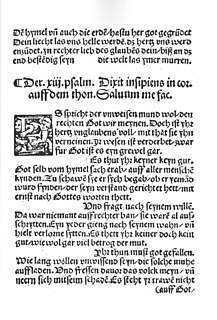Hodgson is a surname. In Britain, the Hodgson surname was the 173rd most common in 1881 and the 206th most common in 1998. In the United States of America, Hodgson was the 3753rd most popular surname in the 1990 census.
Matthew or Matt Taylor may refer to:
Neil is a masculine given name of Gaelic origin. The name is an Anglicisation of the Irish Niall which is of disputed derivation. The Irish name may be derived from words meaning "cloud", "passionate", or "champion". As a surname, Neil is traced back to Niall of the Nine Hostages who was an Irish king and eponymous ancestor of the Uí Néill and MacNeil kindred. Most authorities cite the meaning of Neil in the context of a surname as meaning champion.
Heaney is a surname of Irish origin. It is an Anglicisation of the Gaelic Ó hEignigh, thought to be based on the Gaelic Eochaidh a personal name meaning "horseman". It was mistakenly thought to derive from Éan, Gaelic for Bird. Versions of it are written in the Annals from the 8th century and has a diverse array of modern derivations and origins.

Johann Sebastian Bach composed the church cantata Herz und Mund und Tat und Leben, BWV 147 in 1723 during his first year as Thomaskantor, the director of church music in Leipzig. His cantata is part of his first cantata cycle there and was written for the Marian feast of the Visitation on 2 July, which commemorates Mary's visit to Elizabeth as narrated in the Gospel of Luke in the prescribed reading for the feast day. Bach based the music on his earlier cantata BWV 147a, written originally in Weimar in 1716 for Advent. He expanded the Advent cantata in six movements to ten movements in two parts in the new work. While the text of the Advent cantata was written by the Weimar court poet Salomo Franck, the librettist of the adapted version who added several recitatives is anonymous.
"Jesu, Joy of Man's Desiring" is the most common English title of a piece of music derived from a chorale setting of the cantata Herz und Mund und Tat und Leben, BWV 147, composed by Johann Sebastian Bach in 1723. The same music on different stanzas of a chorale closes both parts of the cantata.
Butt is a German and an English surname whose origins lie in the South West peninsula region of England.
Murtagh is an Irish surname, and may refer to:
Arthur Edward Munds was an English cricketer. He was a left-handed batsman and a left-arm medium-pace bowler who played for Kent County Cricket Club. Munds was born at Lydd in Kent in 1870 and died at High Wycombe in Buckinghamshire aged 70 in 1940.
The English surname or family name Hammond is derived from one of several personal names, most frequently

Unser Mund sei voll Lachens, BWV 110, is a church cantata by Johann Sebastian Bach. He composed the Christmas cantata in Leipzig for Christmas Day and first performed it on 25 December 1725.
Raymond Munds was an English professional cricketer who played seven first-class cricket matches for Kent County Cricket Club in the early 20th century. Munds was a left-handed batsman who bowled right-arm slow. He was born at Lydd in Kent.
Mund is a commune in Valais, Switzerland.

Herz und Mund und Tat und Leben, BWV 147.1, BWV 147a, is a cantata by Johann Sebastian Bach. He composed it in Weimar in 1716 for the fourth Sunday in Advent, 20 December. It is uncertain if the work was performed then. He later expanded the work in 1723 as Herz und Mund und Tat und Leben, BWV 147.
Clarke is a surname which means "clerk". The surname is of English and Irish origin and comes from Latin clericus. Variants include Clerk and Clark. Clarke is also uncommonly chosen as a given name.
"Ich singe dir mit Herz und Mund" is a hymn with a text by Paul Gerhardt written in 1653. It was first published that same year in Johann Crüger's hymnal Praxis Pietatis Melica. In the current Protestant hymnal, Evangelisches Gesangbuch, it appears as EG 324.

"Es spricht der Unweisen Mund wohl" is a Lutheran hymn of 1524, with words written by Martin Luther in 1523, paraphrasing Psalm 14. It was published as one of eight songs in 1524 in the first Lutheran hymnal, the Achtliederbuch. It was also published later that year in the Erfurt Enchiridion. It has appeared in many hymnals, both in German and in translation. The text inspired vocal and organ music by composers such as Johann Pachelbel.
Toon is an Dutch masculine given name that is a diminutive form of Antonie used in Belgium, Netherlands, South Africa, Namibia, Indonesia and Suriname. Notable people with the name include the following:
Charl is an Afrikaans, English, and German masculine given name. Notable people with this name include the following:
This page is based on this
Wikipedia article Text is available under the
CC BY-SA 4.0 license; additional terms may apply.
Images, videos and audio are available under their respective licenses.



